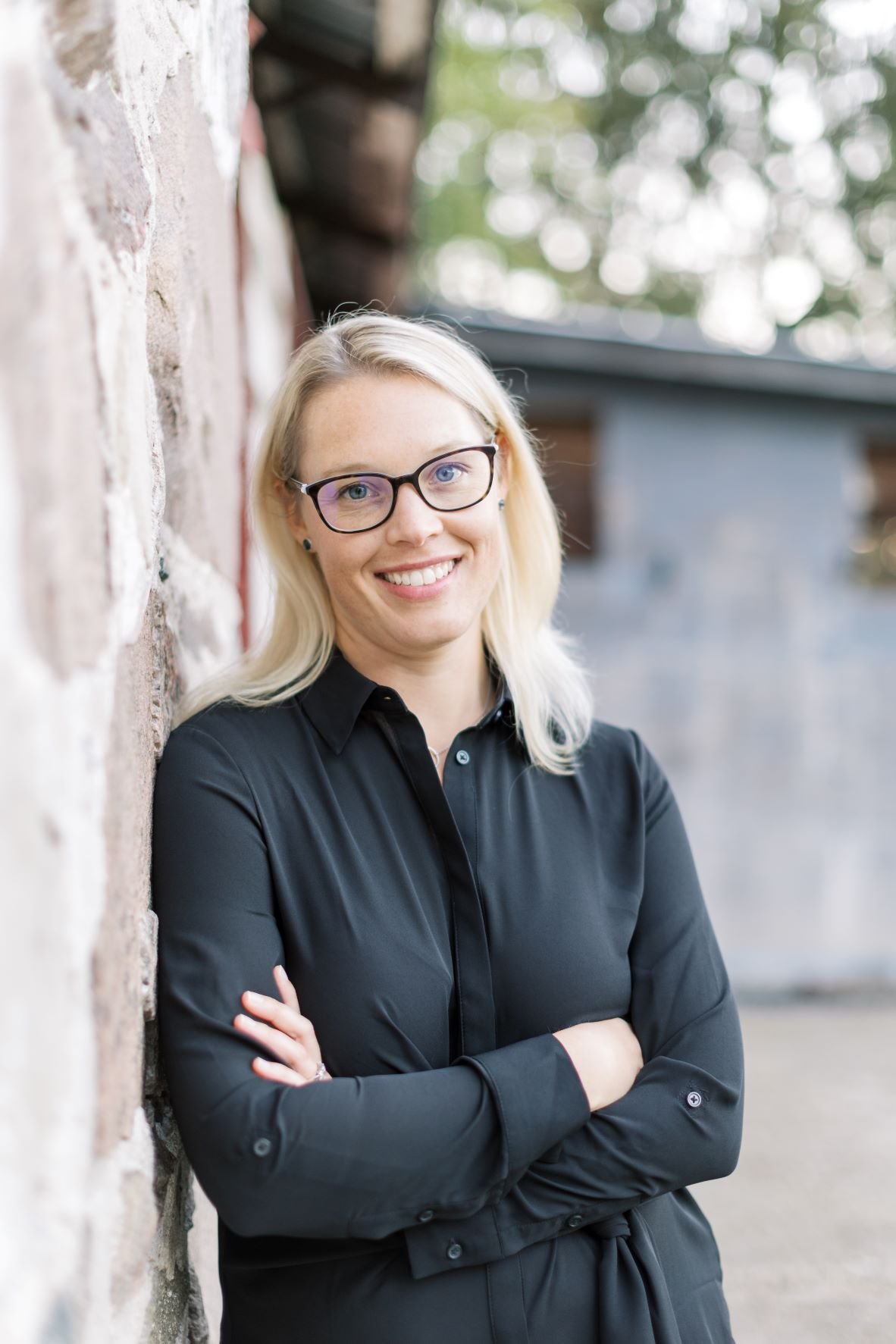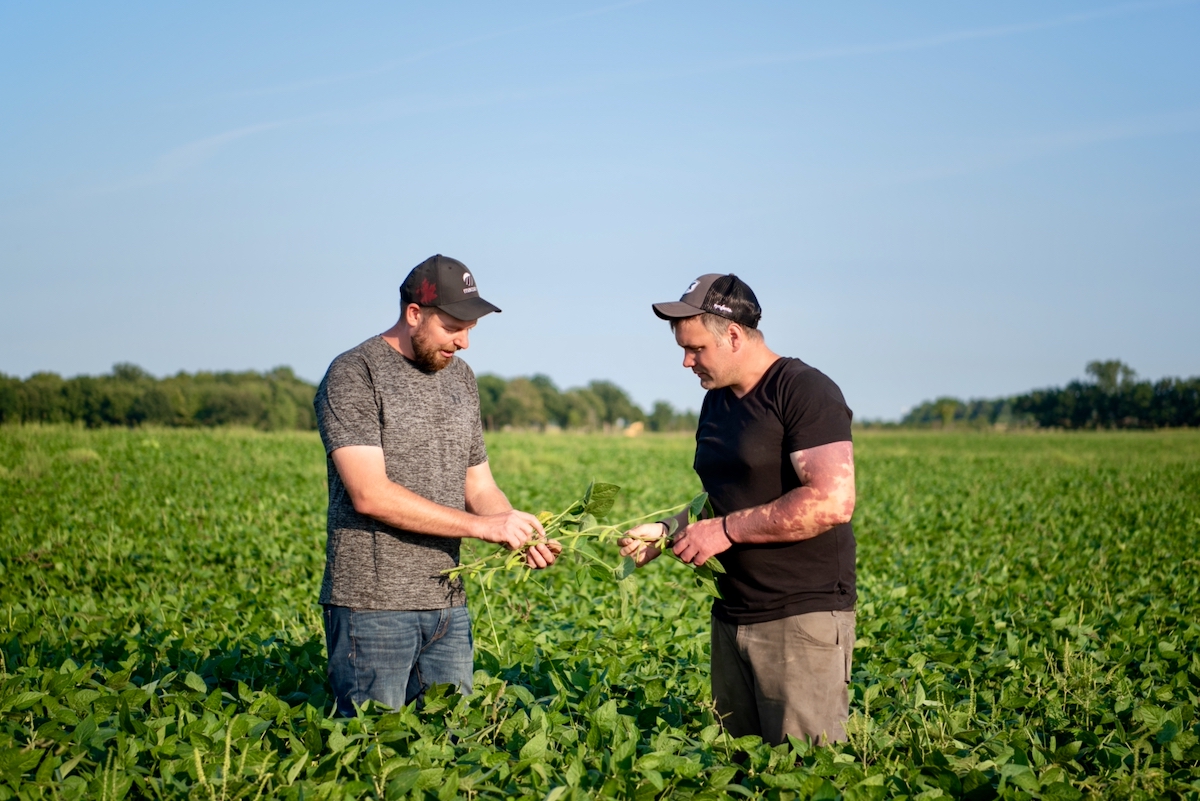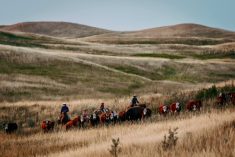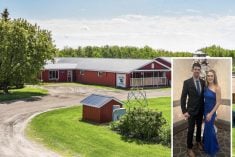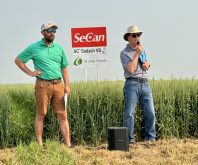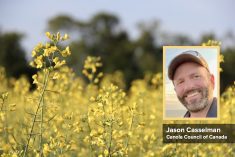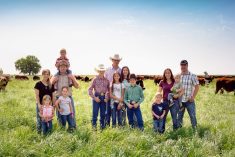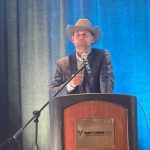Ontario business partners, Matt Bergman and DJ Wassenaar, have been farming together for 10 years. Their focus on integrating unconventional and innovative practices, combined with embracing calculated risks, is one of the reasons they were awarded the Ontario Outstanding Young Farmers (OYF) award in 2024.
As young farmers who are eager to grow their operation, Bergman and Wassenaar are focused on smart business planning and sustainable growth. Both grew up on farms but recognized the value of joining together as partners to build their business.
Together they own and operate Haybury Farms Inc. and Claybank Organics, growing conventional and organic crops, including corn, wheat, soybeans and forages. In 2021, they expanded their business by adding 1,500 acres in the province’s Algoma district where they grow canola, wheat and soybeans. Investing in these northern acres allowed them to economically expand their farm to more than 4,000 acres and scale up incrementally.
Read Also

How scientists are using DNA and climate data to breed crops of the future
A method for forecasting how crops will perform in different environments so that plant breeders can quickly select the best parents for new, climate-resilient varieties.
Country Guide met up with Jarvis, Ont., farmer Bergman to learn more about their approach, what it means to be a farmer today and what he sees for the future of agriculture.
Country Guide: How long have you been farming and what’s changed since you started?
Matt Bergman: I grew up on a dairy farm and started farming for myself at 23, working an off-farm job and using my farmland to pay the farm mortgage. I now farm full-time with DJ, who comes from a beef farm. We also own and operate Winfield Contracting — a commercial snow removal business that serves Haldimand County — and a construction business, County Line Construction. We have a pretty diversified business portfolio, with each business complementing each other nicely.
I think the numbers side of the farm business has changed the most since we started farming together 10 years ago. We used to talk in terms of thousands of dollars, but now it’s hundreds of thousands or millions of dollars. It’s the cost of doing business that’s driving these numbers up, like the cost of tractors, parts and land. I remember when we celebrated our one million in revenue mark. That was a huge achievement, but now it’s a must to keep up.
The size and type of farms have also changed. Farmers today need to either be large or super niche. You also need to have an eye on scalability, especially when it comes to maximizing equipment. For us, size is a necessity not a want. We know we need a certain number of acres to make things pencil out and work for us.
The labour market has also changed drastically. The cost of living is driving up the need to provide higher wages to attract and retain employees. We recognize that it’s more efficient for us to hire employees who want a career, so that requires higher wages but has also resulted in a low turnover rate. I also think there’s a competitiveness among neighbouring farmers these days, especially for land, and that’s one of the reasons we chose to expand into northern Ontario.
CG: Tell us about your Outstanding Young Farmers experience
MB: It was an experience I’ll never forget.
We spent a week with an awesome group of farmers (fellow regional winners from across Canada). It was amazing to see how so many people can come together at the national event who farm in different parts of the country but have so much in common. I noticed that many of us have the same struggles and challenges, but we all approach them differently and we can learn from each other’s experiences. While we were there to compete for the national title, we were all rooting for each other and have come away with life-long friendships.
DJ and I both have young families, so we brought our dads along with us to the national event in Alberta. It was interesting to hear their takeaways from the people they met and the conversations they had as an older generation.

CG: In your opinion, what makes a good leader?
MB: I believe leading by example is important. It’s a way to “set the pace” within a group.
A leader should also be willing to learn from their mistakes. We’ve applied both of these leadership approaches to our farm business, especially because we aren’t working with family, we’re working with employees. DJ and I have different skill sets and approaches, but we both try our best to lead by example and we are open to learning how to do things differently.
CG: How do you think your approach to farming is different from previous generations?
MB: I like to say we operate an agribusiness, not a farm. I think that reflects best what we are actually doing.
There are also a lot more moving parts to a farm business compared to previous generations. One of the greatest differences between our generation and our parents’ is our approach to risk. Debt and risk scare our dads, but they have a different perspective because they started out in the 1980s with sky-high interest rates. DJ and I are both open to taking calculated risks and I think it’s a combination of our young(er) age and the economic environment that makes us more willing to take on risks. I believe age also factors into the risk and reward assessment in business planning.
There’s no doubt technology has changed too. Even in the past decade since we started farming, there are so many new tools that help us maximize our inputs, but they also come at a cost.
CG: Looking back, would you have done anything differently?
MB: Besides buying land sooner?! I wish we had understood the business numbers earlier in our farming partnership. At one point our approach was to work harder to outwork our problems rather than take a methodical approach. I think if we knew how to crunch the numbers, we would have had a better sense of how things would work out.
We have learned that goal-setting and business planning are essential, and that’s helped us take a more proactive approach. Earlier on we were just happy to be farming — we were living our dream. Now that we’re in it I find we are spending more time working on the business rather than in the business.
CG: What is your best advice for young farmers or those coming into “the game”?
MB: Be original. Especially if you’re starting out from scratch, you need to be niche. I’d also recommend learning a skill or trade that you can bring to the farm business.
If you don’t come from a family farm and are considering a business partnership like what we have, be sure to think it through. I am fortunate that DJ and I work so well together, but it takes work.
I think a partnership between a young farmer and an older farmer would be an amazing opportunity, especially if the older farmer is looking for someone to take over.
No matter what, there will always be a job for you in agriculture.

